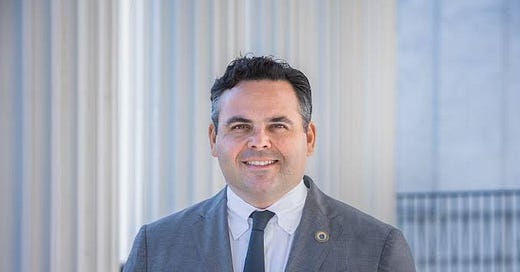News tips? Story ideas? Email us at sbvanvoorhis@hotmail.com
It’s a goner: Boston mayor’s biz tax hike plan blocked again in state Senate, raising questions about its future
Looks like it’s time to giv…
Keep reading with a 7-day free trial
Subscribe to Contrarian Boston to keep reading this post and get 7 days of free access to the full post archives.



